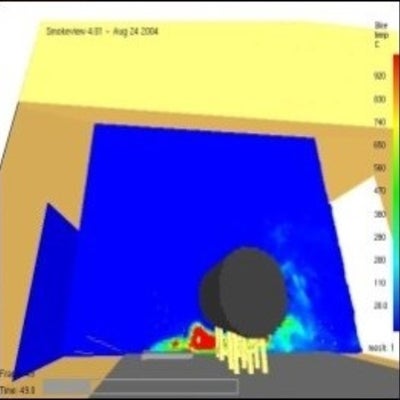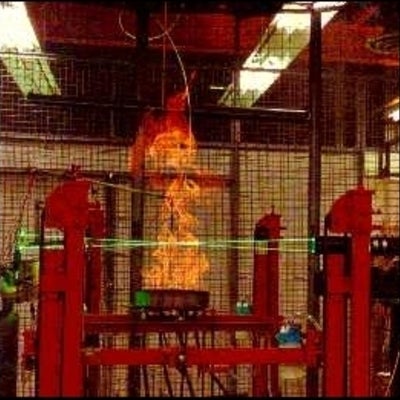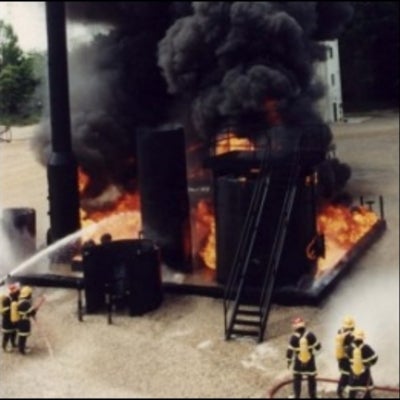Advance your education and career in fire safety in the most flexible format
Flexible study options | Course structure | Remote Learning option
The University of Waterloo Fire Safety Program is designed for engineering graduates as well as experienced architects, designers, engineers, building consultants and regulatory officials who wish to upgrade and enhance their knowledge of fire safety engineering.
Flexible study options to fit your professional life and educational goals:
-
Four program options available: Certificate in Fire Safety, MEng Graduate Diploma in Fire Safety, MASc and PhD
- Choose a full-time, 12 to 16-month program or part-time studies
- Begin your program in January, May or September
-
Courses delivered in an intensive, week-long course format with ample time to complete coursework afterwards
-
Coursework and projects tailored to the needs of your industry with current issues and challenges continually addressed
Flexible course structure
- All core and elective Fire Safety courses are delivered in an intense, week-long (36-40 hours) lecture/laboratory format, with lab exercises and hands on demonstrations during the week. In many courses, Friday is set aside as a one-day Symposium with guest speakers. Talks are tailored to professional development in that particular course area. External industry professionals are invited to enrich the networking experience for students.
- Ample time for course work after lecture week: For credit-based students (those seeking a Certificate in Fire Safety or a Graduate Diploma), the lectures are offered in one University of Waterloo term (winter, spring or fall). The majority of coursework (comprised of case studies, projects, assignments and a research topic) is electronically submitted in the following term (spring, fall or winter, respectively), usually over a 4-6 month period following the week of lectures. This gives each student ample time to fit in course work while balancing a professional career.
- Certificate of Attendance is available for those participating in all the lectures but not submitting course work. Full fees apply. There is NO auditing permitted in these courses.
- Extreme flexibility: Course slides, handouts, assignments, projects, etc are available through MS-TEAMS, the UW LEARN system or via Dropbox for each course. Assignments test students on key concepts in a course; projects and case studies focus on applications and are individually tailored to the interests/needs of each student’s industry.
- Remote learning available. For participants unable to attend the week long campus based lectures, we offer attendance at the courses via state-of-the-art interactive instruction facilities. The remote learning environment is enabled through interactive video conferencing, providing an immersive, real-time experience where students seamlessly participate with the instructor and others in the class as if they were in the same location. (See technical requirements)
- If you miss a class, or wish to refer back to the course material while doing your course work, you have the opportunity to watch the recorded sessions of the class and email any questions to the instructor.
- There are no exams, so students are able to take the entire program in class or interactively online, or can take courses using only the recorded lectures (available but not recommended). Any mix of these learning methods is permitted.
- We offer the courses individually or as requirements for MEng, MASc/PhD or the 4 course certificate programs.
- Lectures are held in classrooms in the University of Waterloo Engineering buildings, with their state-of-the-art interactive online capabilities for remote learning.
- Networking: With a small class size, comprised of industry professionals and graduate students, participants will learn in a vibrant, interactive atmosphere. This diversity exposes students to vital networking opportunities and to make significant industry connections.
Not living in Waterloo? You can study and learn online with our real-time remote learning portal
Currently, interactive seats are available for every course for students who cannot make it to the UW campus to take the lectures. These are offered through the MS-TEAMS or Zoom – with a PC, webcam and microphone, a student uses the software to sit in lectures in real-time and interactively participate. They can ask questions and provide experience just as if they are in the classroom at UW. All lectures are taped and made available to all registered students in each class through a dedicated course site. In this way, each student can review any missed lectures or re-view the lectures while doing their coursework.
- Technical requirements for remote learning include a Mac or Windows based PC with webcam and microphone. The software is compatible with any H323 or SIP standard system (not Skype).
You can also earn your Masters of Engineering degree with a Graduate Diploma in Fire Safety
The University of Waterloo Masters of Engineering degree with a Graduate Diploma in Fire Safety is a graduate studies program offered through Mechanical and Mechatronics Engineering that requires successful completion of: three (3) core courses; three (3) specialty elective courses in Fire Safety, two other Engineering graduate courses, including any of the remaining Fire Safety courses, and a communication credit. Students must all attend at least four (4) Departmental seminars through the course of their degree.
- For students who are not in the Mechanical Engineering MEng Graduate program, successful completion of four (4) fire safety courses can be applied towards a Departmental Certificate in Fire Safety.
NOTE: To apply to the Fire Safety Program, students must register in the Fire Safety courses by completing the online course registration form. Please clearly indicate whether you are also planning to apply for the MEng in Fire Safety, the Fire Safety Certificate program or an individual course in the comments section so that we are able to best guide you in the program.
2026 Course Schedule ***PRELIMINARY SCHEDULE*** |
|
|---|---|
|
January 26 - 30, 2026 Core Course |
ME 671 - Fire Dynamics Instructor: Various, University of Waterloo |
|
May 2026 (TBA) |
ME 765 - Advanced Fire Investigation Course Outline Instructor: P. Senez, SenezCo, Adjunct Professor |
|
June 2026 (TBA) |
ME 770 - Fire Risk Analysis Instructors: Professor G. Jomaas, Slovenia; Professor Kazuyoshi Nishijima, Kyoto |
|
September 2026 Core Course |
ME 673 - Fire Modelling Instructor: Various, University of Waterloo |
|
November 2026 Core Course |
ME 672 - Advanced Enclosure Fires Instructor: N. Ryder, Fire Risk Alliance, Adjunct Professor |
|
September 2026 (TBA) Core Course |
ME 673 - Fire Modelling Instructor: TBA, University of Waterloo |
| May 2026 (video only) |
ME 765 - Human Behaviour in Fire Instructor: Professor J.Gales, York University |
| Additional offerings of ME 671, ME 672 and ME 673 video-only (dependent on interest) | |
| 2027 Courses | ME 671, ME 673, ME 770 Fire Testing, ME 720 Fire Resistance, ME 765 Human Behaviour in Fire, one of ME 765 Advanced Fire Investigation/ME 672 Advance Fire Dynamics |
For information on Fire Safety Group courses, registration, and admissions:Fire Safety Program e-mail: firesafetyprogram@uwaterloo.ca |
|





